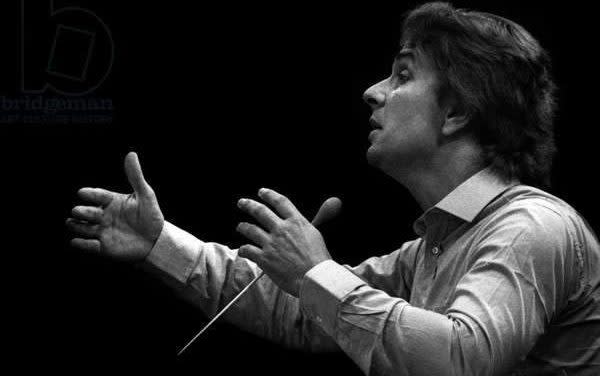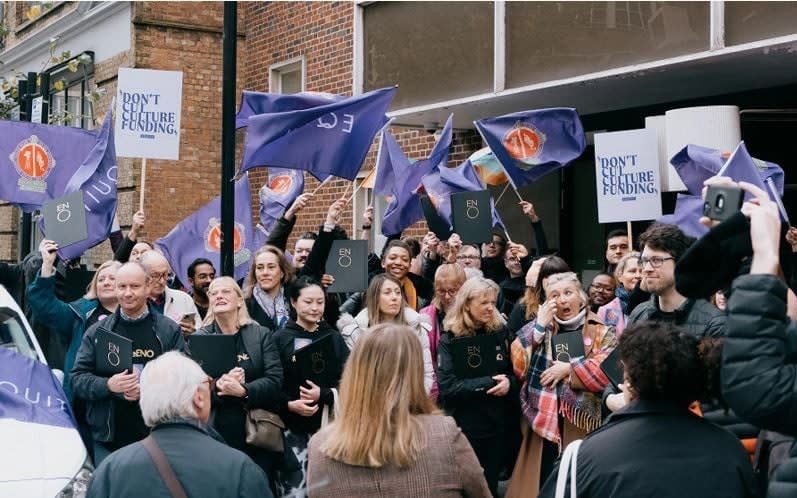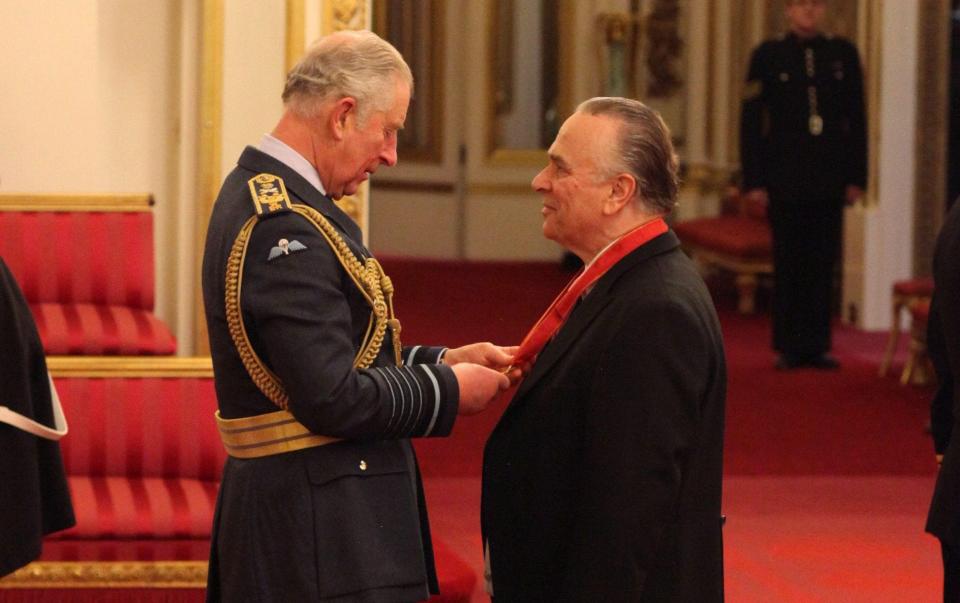Sir Mark Elder has never forgotten his first performance with the Hallé Orchestra, more than forty years ago. “We were performing Ravel’s Rapsodie espagnole,” he says with a cheerful grin, “and had just arrived at the first big explosion of energy. There was supposed to be a dramatic silence, but the side drum stand collapsed, and when a player lunged to save it, he knocked over a cymbal and a music stand. The noise was great. At that moment I thought, ‘Okay. That’s that. I will never work with this orchestra again’.”
His thoughts were not prophetic. Around the turn of the millennium, Elder became music director of the Manchester Orchestra, a position he eventually resigned. Under his auspices it is widely regarded as a golden age for Hallé, but Elder says things were quite different 25 years ago. “The orchestra was not in good shape. It felt like they had lost their joy in making music.”
Elder knew that if he took the job, he would inherit the mantle that had draped around some ample shoulders, most notably Sir John Barbirolli, who had led the orchestra for 27 glorious years, from 1943 to 1970. But when he arrived, there was a problem. “At the end of the 1990s, the orchestra was almost bankrupt, due to the enormous debts it had accumulated under the previous regime. There was a point in 1998 when the orchestra was literally two weeks away from bankruptcy,” Elder recalls. “I said I was only willing to sign a contract if I knew the finances were in order.”
Fortunately, the Hallé, along with most of Britain’s major orchestras, was saved by an enlightened plan from the Arts Council of England, which saw the orchestras’ debts written off in return for the presentation of a viable business plan. In the cold light of 2024, as the Arts Council continues its war on classical music and opera, this seems extraordinary, even if the Hallé has been luckier than many: it received a standstill grant for 2023-2026.
“You have to hold on to the belief in excellence, but that seems to be lacking at the Arts Council,” says Elder. “We certainly have to admit that something that is artistically first-rate deserves more funding than something that is third-rate, but even that simple principle seems controversial. I think it’s so very sad that we have a government that can’t support the arts, that can’t come out and say, ‘We believe culture matters.’ I suppose it’s because there are no voices in it.”

In 2000, Elder’s vision proved to be simple. “This may sound conceited, but in these situations you have to be ambitious when you set up your stall. I simply wanted to make Hallé the largest orchestra in the world for British music.” Returning the Hallé to its roots, to Elgar and Vaughan Williams, has paid off.
Actually, Elder is not conceited. What he is is a very good storyteller; he once told me a story about a famous violinist who, just before he went on stage, purred to him, “I like a conductor who can dominate me.” We meet at the north London home Elder shares with Mandy, his wife of 44 years. It is packed with memories of a career spanning more than half a century. On a lectern is the enormous score of James MacMillan’s cantata, Timotheus, Bacchus and Cecilia, which he is preparing for the concerts on the occasion of his farewell from the Hallé in the summer.
It’s quite a journey he’s been on since he started as a choirboy at Canterbury Cathedral. He studied music at Cambridge and subsequently became a protege of conductor Edward Downes, who asked Elder to join him as an assistant at the Opera House in Sydney. In 1979 he was appointed music director of the English National Opera. As a member of the so-called ‘powerhouse’, he led ENO for fourteen years, together with his old friend from Cambridge, David Pountney, who was artistic director, and managing director Peter Jonas.
When Elder took over at ENO, he was only 32. It was a different era, when female conductors barely existed and the great maestri of the stage still feared orchestras. Has he ever had tantrums? “Look, it’s absolutely crucial that an orchestra conductor never throws a tantrum, right? But there are circumstances when it is completely appropriate to pretend to have a tantrum. You have to use every approach to get that special performance that everyone wants. You have to be a leader, and it takes time to figure out how to do that. You have to build a relationship with an orchestra that is based on psychology, on humanity and humor, and you need all these things because you have to tap into their fantasy and imagination.”


When I ask Elder about the state of his old company, his face falls. “I am sorry and sad that my old business in the Coliseum is so vulnerable right now. Because they prove time and time again that theater at the highest level can really touch people’s lives.”
Does he think the plan to create a base for the company in Manchester has legs? “I’m not sure,” he says after a long silence.
“I think it’s a very big undertaking, and Manchester has never been a great city for opera, and I wonder whether all the necessary preparatory work has been done. It will take leadership, money and patience, and the kind of long-term thinking that seems to be in such short supply these days.”
Certainly, Elder has contributed to classical music at a basic level. He talks about how he “wanted to show what we thought a 21st century orchestra should be. And that is something much bigger than just giving concerts. We thought, if we can really connect with the lives of people in this city, then we’re really onto something.”


One way Elder wanted to achieve this was by creating a so-called ‘pyramid’ of choirs in Manchester. “I was shocked by the lack of voice in the city,” he recalls. De Hallé now runs four different choirs, including a community group for people living in Ancoats, the Manchester suburb where De Hallé is based.
Elder can take pride in leaving the Hallé in good condition to his successor, Singapore-born Kahchun Wong, although he admits it will be strange to see a future without it. However, he won’t be sitting idle, with regular guest conducting at the Bergen Philharmonic and appearances at the Met in New York to keep him busy.
“Of course I will miss the Hallé,” he says, “but there is a new management team and this is the right time to move on and let the orchestra evolve without me.
“As far as my work goes, it’s as rich as it’s ever been. I have no desire or even the ability to retire, I’m here to make music. That’s why I live.”
Sir Mark Elder gives farewell performances with the Hallé at the Bridgewater Hall, Manchester, on May 31 and June 1 halle.co.uk; Aldeburgh Festival on June 23rd brittenpearsarts.org; BBC Proms on July 21 bbc.co.uk/proms; Edinburgh International Festival on August 17, eif.co.uk